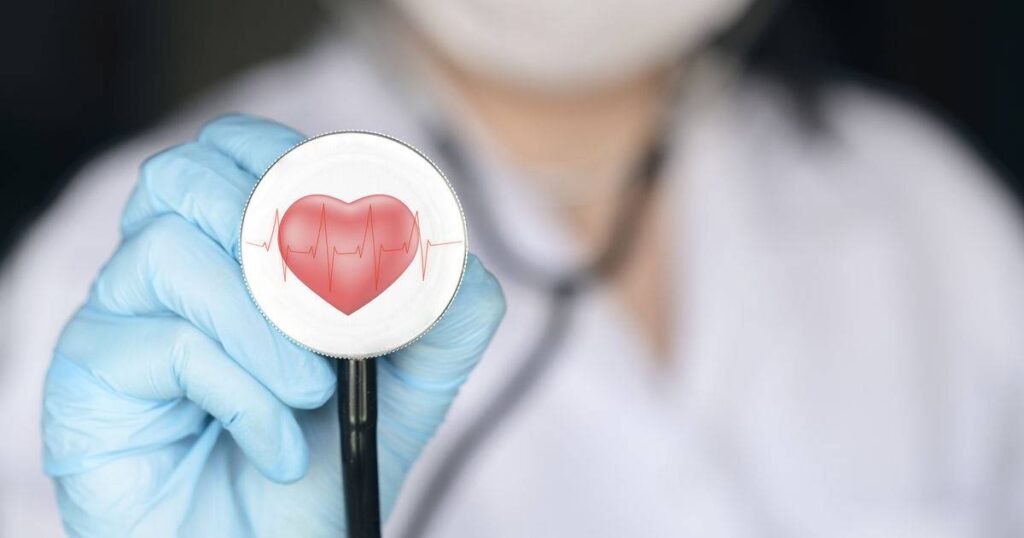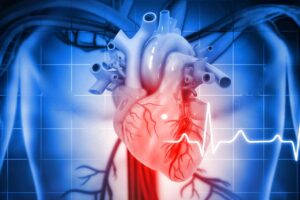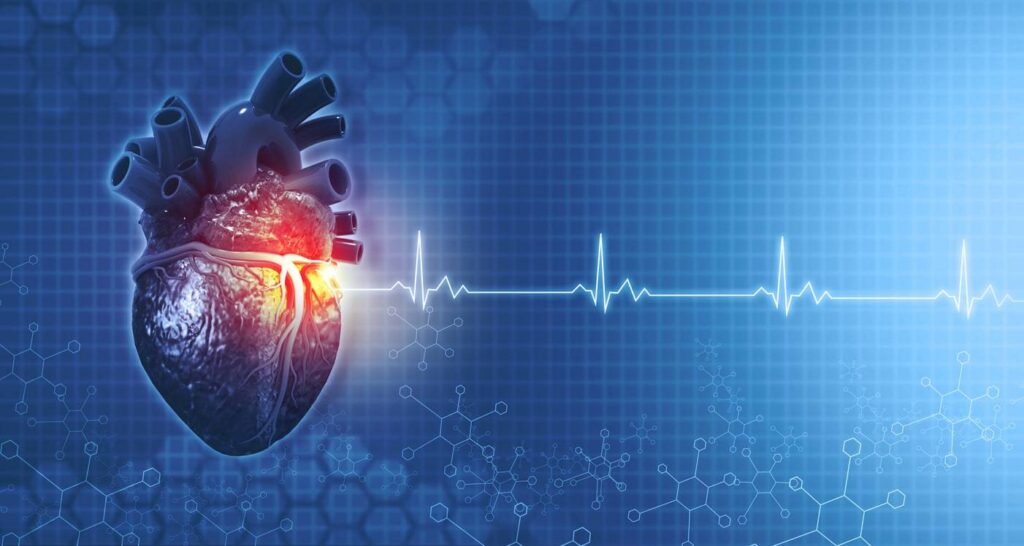Have you ever felt a sudden flutter or skipped beat in your chest? That sensation might be due to Premature Ventricular Contractions (PVCs), a common heart condition. For many, PVCs can be unsettling, but the good news is that in most cases, they aren’t dangerous. However, if you’re experiencing frequent palpitations or discomfort, you might be wondering—are PVCs something to worry about?
In this blog, we’ll explore what PVCs are, whether they’re serious, and most importantly, how you can manage or even stop them. If you’ve ever been concerned about those irregular heartbeats, keep reading—this could be the information you need to take control of your heart health!
Contents
What Are Premature Ventricular Contractions (PVCs)?
 Premature Ventricular Contractions (PVCs) are irregular heartbeats that happen when the heart’s lower chambers (called ventricles) beat earlier than they should. These extra beats disrupt the regular rhythm of your heart and can cause a feeling of skipped beats or a flutter in the chest.
Premature Ventricular Contractions (PVCs) are irregular heartbeats that happen when the heart’s lower chambers (called ventricles) beat earlier than they should. These extra beats disrupt the regular rhythm of your heart and can cause a feeling of skipped beats or a flutter in the chest.
How Do PVCs Feel?
- You might feel like your heart skips a beat or pounds in your chest. Some people describe it as a fluttering or extra beat.
- It usually happens after a normal heartbeat, causing a brief pause before the heart resumes its normal rhythm.
Why Do PVCs Happen?
- PVCs can occur for many reasons, like stress, caffeine, or even heavy meals.
- In some cases, PVCs might also be triggered by heart disease, electrolyte imbalances, or high blood pressure.
While PVCs can be uncomfortable, they’re often harmless. But if they become frequent or are accompanied by other symptoms like dizziness or chest pain, it’s important to consult a doctor.
Are PVCs a Serious Heart Problem?

In most cases, PVCs are not a serious problem and are quite common, especially in healthy individuals. Here’s a breakdown of when PVCs are considered normal and when they could indicate a deeper heart issue:
1. When PVCs Are Considered Normal
-
Occasional PVCs: Many people experience PVCs now and then, especially after stress, caffeine, or physical exertion. If these irregular beats are rare and don’t cause discomfort, they are usually not a cause for concern.
-
Healthy Individuals: For individuals without heart disease, PVCs are typically harmless and may happen in response to temporary triggers. In these cases, they don’t pose a significant risk to heart health.
2. When PVCs May Indicate a Heart Problem
-
Frequent PVCs: If you notice PVCs happening regularly or more than once every few minutes, it could be a sign of an underlying heart condition.
-
Symptoms: If PVCs are accompanied by other symptoms such as dizziness, chest pain, shortness of breath, or fatigue, they could signal a more serious heart issue, like heart disease or arrhythmia.
-
Underlying Heart Conditions: Frequent PVCs can sometimes be linked to conditions like heart failure, coronary artery disease, or cardiomyopathy.
3. Benign PVCs vs. Dangerous PVCs
-
Benign PVCs: Occasional PVCs with no other symptoms or heart conditions are usually considered benign (not harmful). These are generally managed with lifestyle changes or simply monitored.
-
PVCs Requiring Medical Attention: If PVCs are frequent, occur with symptoms, or are linked to existing heart problems, it’s important to get them checked by a doctor. Persistent PVCs may need treatment to prevent complications.
If you’re experiencing PVCs regularly or with other symptoms, it’s always a good idea to consult a healthcare provider. A thorough evaluation can determine whether they’re harmless or require treatment.
Causes of PVCs
Premature Ventricular Contractions (PVCs) can happen for many reasons, some of which are harmless, while others might signal an underlying heart issue. Here are the common causes of PVCs:
- Stress and Anxiety
- Consuming too much caffeine (coffee, tea, or energy drinks)
- Low levels of electrolytes like potassium, magnesium, or calcium
- High Blood Pressure
- Heart Disease or Structural Heart Issues
- Drinking excessive alcohol
- Hormonal fluctuations, particularly in pregnancy, menopause, or during the menstrual cycle
- Medications, especially decongestants, asthma drugs, or thyroid medications
- Physical Exertion or Fatigue
While many of these causes are harmless, persistent PVCs or those occurring alongside other symptoms should be evaluated by a healthcare provider. It’s important to understand the cause to determine the best course of action for treatment.
How Do PVCs Affect Your Heart?
 While occasional PVCs are usually harmless, frequent or persistent PVCs can have a more significant impact on your heart health. Here’s how PVCs may affect your heart:
While occasional PVCs are usually harmless, frequent or persistent PVCs can have a more significant impact on your heart health. Here’s how PVCs may affect your heart:
1. Reduced Heart Function
If PVCs occur frequently, they can cause the heart to work less efficiently. Each PVC is followed by a pause, which may prevent the heart from fully filling with blood. Over time, this can lead to reduced cardiac output, meaning the heart struggles to pump enough blood to the rest of the body.
2. Heart Failure
In some cases, frequent PVCs can strain the heart, especially if the underlying heart muscle is weak or already compromised. This can contribute to heart failure, a condition where the heart can no longer pump blood effectively.
-
Impact: Persistent PVCs can make heart failure symptoms worse by further disrupting the heart’s rhythm, leading to worsened fatigue, fluid retention, and difficulty breathing.
3. Increased Risk of Other Arrhythmias
Frequent PVCs can lead to the development of other arrhythmias (irregular heartbeats), such as atrial fibrillation or ventricular tachycardia. These arrhythmias are often more serious and can increase the risk of stroke, sudden cardiac arrest, or other heart complications.
-
Impact: PVCs that occur in clusters or are coupled with other arrhythmias can increase the likelihood of more dangerous rhythm problems.
4. Compensatory Mechanisms by the Heart
The heart tries to compensate for the irregular beats by increasing the heart rate. This compensatory tachycardia can put added stress on the heart, especially in individuals with underlying heart conditions like coronary artery disease.
5. Reduced Heart Efficiency
Frequent PVCs can disrupt the heart’s natural rhythm and efficiency. This can lead to feelings of fatigue, lightheadedness, or dizziness because the heart isn’t pumping as efficiently as it should.
While most people with occasional PVCs don’t experience significant heart issues, frequent PVCs may require attention. If you experience PVCs regularly or along with other symptoms, it’s important to seek medical advice to prevent complications and maintain optimal heart health.
Symptoms of PVCs and When to Seek Medical Help
Here are the common symptoms of PVCs and when you should seek medical attention:
Symptoms:
- Skipped beats or fluttering sensation in the chest
- Pounding heartbeats or irregular heartbeats
- Dizziness or lightheadedness
- Shortness of breath
- Fatigue or feeling unusually tired
- Chest discomfort or mild chest pain (rare)
When to Seek Medical Help:
- If PVCs are frequent or occur in clusters
- If they are accompanied by chest pain, shortness of breath, or lightheadedness
- If you experience severe dizziness or fainting
- If PVCs are interfering with daily activities
- If you have a history of heart disease or heart failure
If any of these symptoms occur or if you’re concerned about your PVCs, it’s important to consult a doctor to rule out any underlying heart issues.

